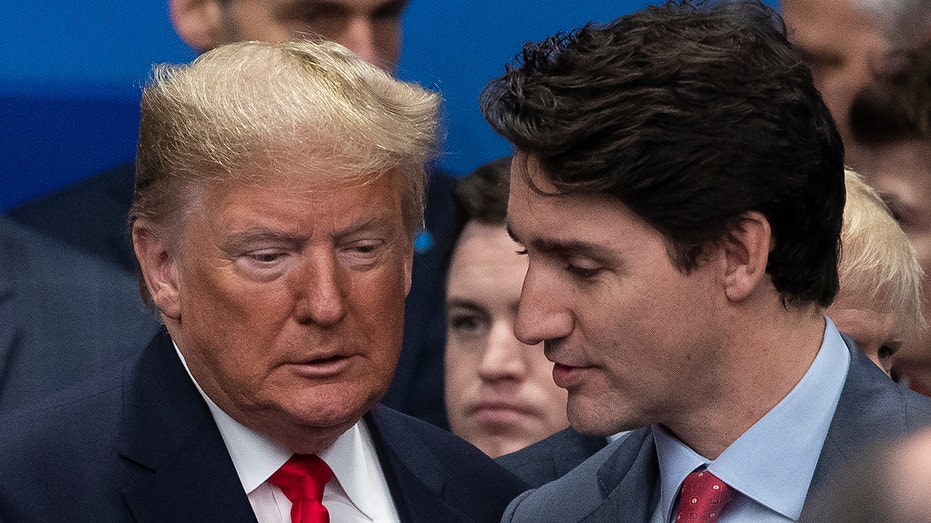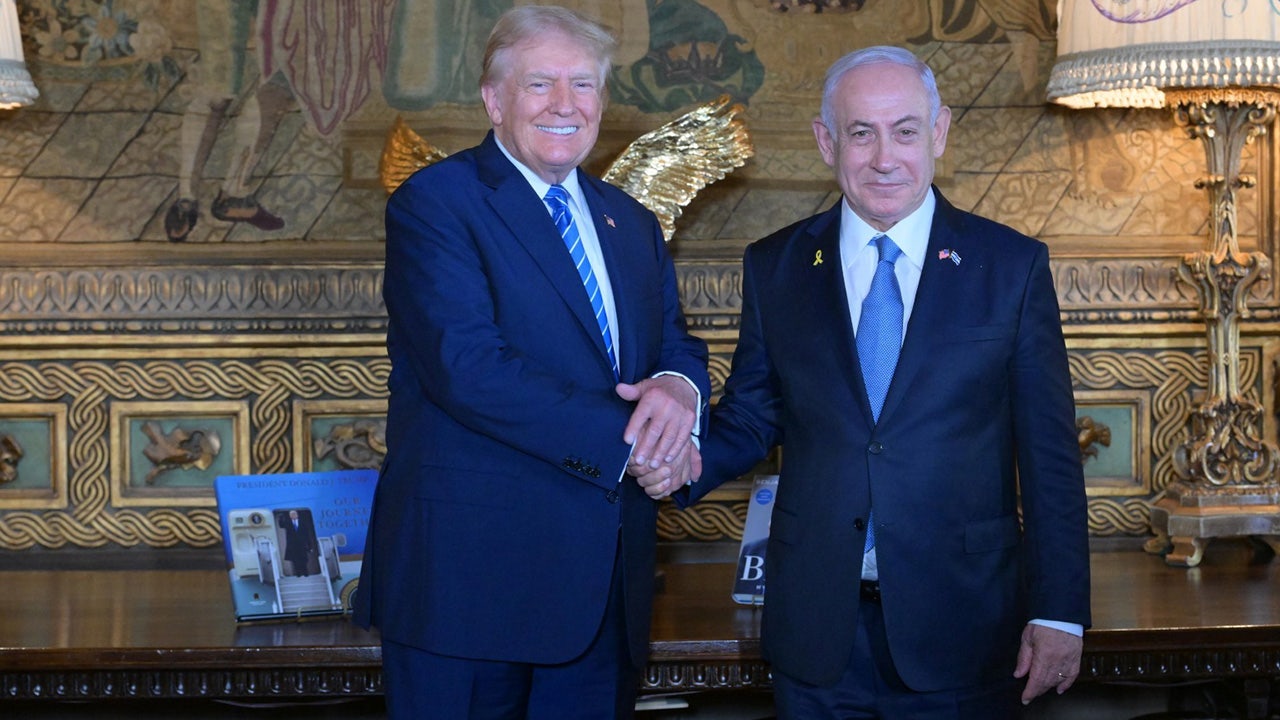Canada and Mexico each announced tariffs on U.S. imports on Saturday in retaliation for U.S. President Donald Trump placing tariffs on the two countries.
Trump had signed an executive order authorizing a 25% additional tariff on imports from Canada and Mexico and a 10% additional tariff on imports from China. Energy imported from Canada, including oil, natural gas and electricity, would be taxed at an additional 10%.
The White House cited the “extraordinary threat posed by illegal aliens and drugs, including deadly fentanyl” that it argues “constitutes a national emergency.” The tariffs will go into effect on Tuesday.
The tariffs, if sustained, could cause inflation to significantly worsen after Trump vowed on the campaign trail to lower the prices of groceries, gasoline, housing, autos and other goods, according to The Associated Press. The tariffs on America’s largest trading partners also risk harming the global economy.
TRUMP IMPOSES TARIFFS ON IMPORTS FROM CANADA, MEXICO AND CHINA: ‘NATIONAL EMERGENCY’
Trump’s order also pledges to raise the rates if the countries retaliate, which could lead to even more severe economic disruption, but that did not prevent Canada and Mexico from doing just that.
“The actions taken today by the White House split us apart instead of bringing us together,” Canadian Prime Minister Justin Trudeau said at a news conference in announcing that America’s northern neighbor would place matching 25% tariffs on up to $155 billion in U.S. imports, including alcohol and fruit.
Trudeau expressed the betrayal that many Canadians are feeling, reminding Americans that Canadian troops fought alongside them in Afghanistan and helped respond to various disasters in the U.S., including wildfires in California and Hurricane Katrina.
“We were always there standing with you, grieving with you, the American people,” he said.
Trudeau warned of economic pain due to the tariffs and encouraged Canadians to “choose Canadian products and services rather than American ones.” Still, he expressed optimism in the enduring relationship between the two countries.
“It is going to have real consequences for people, for workers on both sides of our border,” he said. “We don’t want to be here. We didn’t ask for this, but we will not back down in standing up both for Canadians and for the incredible successful relationship between Canada and the United States.”
Mexican President Claudia Sheinbaum similarly ordered retaliatory tariffs.
TRUMP’S TARIFFS TAKE EFFECT SATURDAY: WHAT TO KNOW

“We categorically reject the White House’s slander that the Mexican government has alliances with criminal organizations, as well as any intention of meddling in our territory,” Sheinbaum wrote in a post on X, noting that she had instructed her economy secretary to implement a response that includes retaliatory tariffs and other measures.
“If the United States government and its agencies wanted to address the serious fentanyl consumption in their country, they could fight the sale of drugs on the streets of their major cities, which they don’t do, and the laundering of money that this illegal activity generates that has done so much harm to its population,” she added.
The premier of the Canadian province of British Columbia, David Eby, also called on residents to stop buying liquor from GOP-led states in the U.S. and said it was removing American alcohol brands from government store shelves in response to the tariffs.
China also responded to Trump’s tariffs, saying they will bring a complaint to the World Trade Organization and that they would take “corresponding countermeasures to resolutely safeguard our own rights and interests.”
“China is strongly dissatisfied and firmly opposes this,” China’s commerce ministry said in a statement.
A new analysis by the Budget Lab at Yale said the average U.S. household would lose the equivalent of $1,170 in income from Trump’s new tariffs, according to The Associated Press. Economic growth would slow and inflation would worsen, and the economic impact could become even worse with retaliation from other countries.
The order would also allow for tariffs on Canadian imports of under $800. Imports below that number, according to The Associated Press, are currently allowed to cross into the U.S. without customs and duties.
Democrats in Washington criticized Trump’s order, warning that any inflation in the near future would be the result of Trump’s actions.
“You’re worried about grocery prices. Don’s raising prices with his tariffs,” Senate Minority Leader Chuck Schumer, D-N.Y., wrote on X.
“You’re worried about tomato prices. Wait till Trump’s Mexico tariffs raise your tomato prices,” he said in another post.
The Democrat leader added in another post: “You’re worried about car prices. Wait till Trump’s Canada tariffs raise your car prices.”



